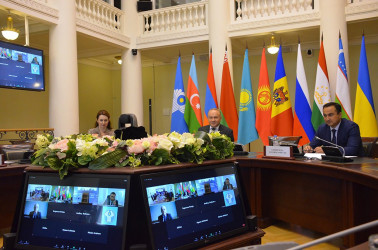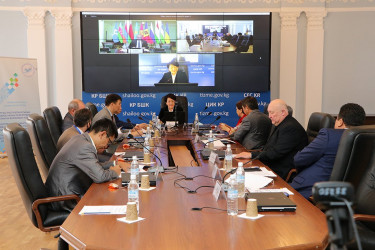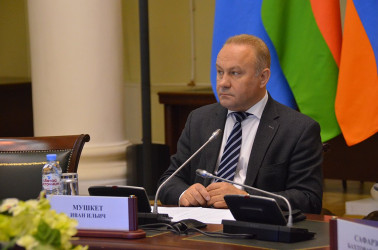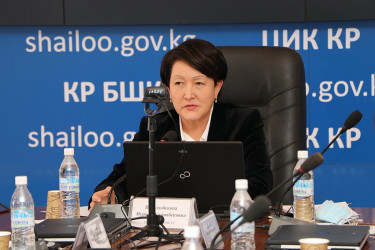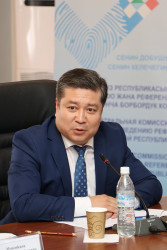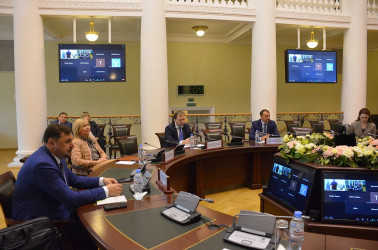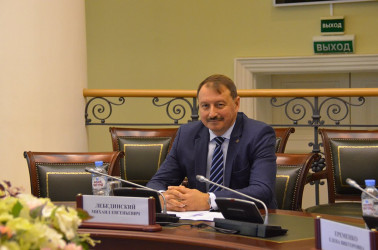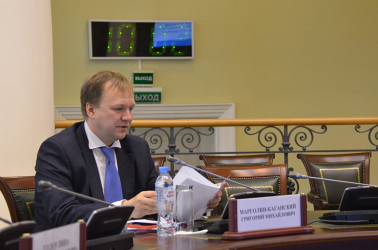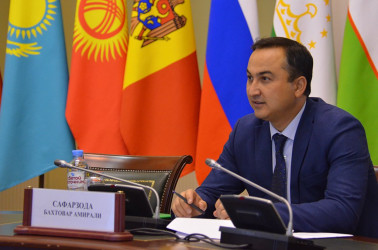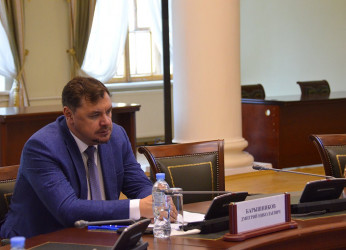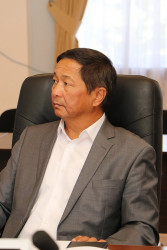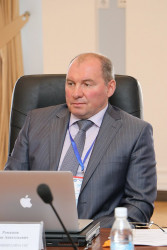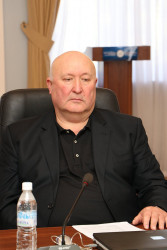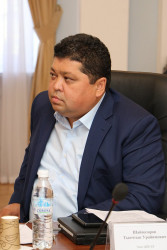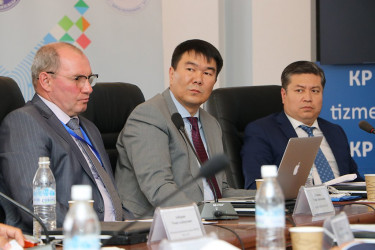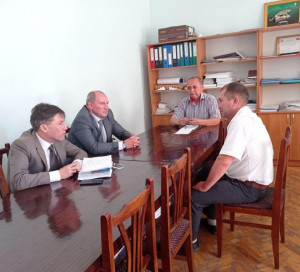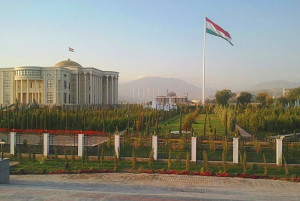Ensuring Security and Credibility of Elections Discussed at Roundtable Co-organized with CEC of Kyrgyzstan
10 September 2020
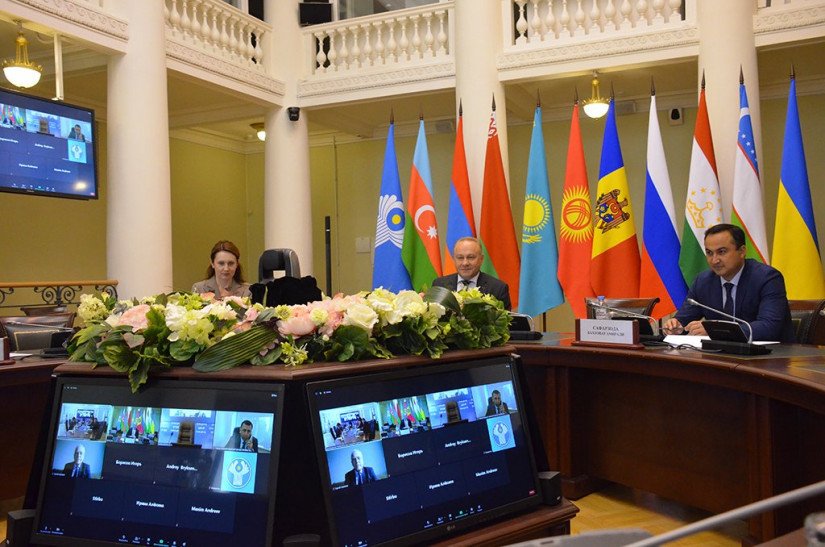
On 9 September 2020, the roundtable “Modern Technologies of Ensuring Security and Credibility of Elections” co-organized by the International Institute for Monitoring Democracy Development, Parliamentarianism and Suffrage Protection of Citizens of IPA CIS Member Nations (IPA CIS IIMDD), its Bishkek office and the Central Commission on Elections and Holding Referenda of the Kyrgyz Republic was held via video-conferencing in St. Petersburg and Bishkek. The roundtable was also attended by the representatives of the IPA CIS IIMDD offices in Baku, Yerevan and Chisinau, academia and experts from Moscow, St. Petersburg and Bielefeld (Germany).
The welcome address of the Secretary General – Head of the IPA CIS Council Secretariat Dmitriy Kobitskiy was delivered by Director of the IIMDD IPA CIS Ivan Mushket. Dmitriy Kobitskiy stressed that modern IT technologies empowered citizens to exercise their rights but at the same time could be exploited for destructive purposes. The Joint Statement of the CIS Heads of State on Cooperation in Ensuring International Information Security was being drafted, which indicated the seriousness of the issue. He also noted that the IPA CIS IIMDD worked on the revised Recommendations for CIS International Observers.
Chair of the Central Commission on Elections and Holding Referenda of the Kyrgyz Republic Nurzhan Shaildabekova also addressed the participants of the roundtable and noted the importance of using new technologies in electoral processes for ensuring the trust of citizens in the electoral system and results of voting.
She told about the reform implemented in the Kyrgyz Republic in 2015, which included the introduction of biometric identification of voters, equipping ballot boxes with scanners, which enabled automatic counting of votes getting the results of 97% of ballots 1.5 hours after the end of voting. She also mentioned the platform “Electronic Candidate”, which automatically checks the data, and the measures taken to ensure the information security and protection of voters’ personal data.
Deputy Secretary General of the IPA CIS Council – Plenipotentiary Representative of the Jogorku Kenesh of the Kyrgyz Republic Nurbek Satvaldiev noted the opportunities for improving the effectiveness of state management, election administration, ensuring credibility and transparency of elections by implementing information technologies.
Chair of the Election Commission of the Leningrad region (Russia) Mikhail Lebedinskiy told about the preparation for the upcoming elections of the governor of the Leningrad region.
IPA CIS IIMDD expert, Doctor of Law, Professor Roman Romashov delivered a report “Information Security in Electoral Process: Modern Challenges and Treats, Ways to Optimize” and told about the need to legally regulate the spread of information and counter the destructive forces that misuse information flaws.
Deputy Head of the IPA CIS Council Secretariat – Director of the IIMDD IPA CIS, Doctor of Law, Professor Ivan Mushket stressed the need to address legal nihilism of citizens to ensure the transparency and credibility of elections. He told that this could be achieved by rising legal awareness of voters, especially the young people. He noted the important work carried out in this field by the Youth CIS Interparliamentary Assembly.
Chairman of the Council of the Russian Public Institute of Electoral Law, Candidate of Legal Sciences Igor Borisov in his statement “State Responsibility in Ensuring Open and Transparent Elections at the Present Stage of Electoral Technologies” highlighted the need to amend the regulations taking into account the technical development of electoral procedures.
PhD of the University of Maryland (USA) Emilbek Juraev told about the factors contributing to the electoral manipulation, noted their intrinsic link to the political and social processes and the role of technologies in their prevention.
Adviser to the IPA CIS Council Secretary General Sergey Karavayev focused on the experience of implementation of the remote electronic voting and noted the ambiguity in public perception of innovation in the electoral system, including those related to the use of modern technologies.
Director of the IIMDD IPA CIS Bishkek office Islambek Mursabekov told about the challenges to the legal status of the member of the election commission, existing pressure to the members of the election commissions in social networks and stressed the need to create mechanisms to counter this phenomenon.
Researcher of the Bielefeld University (Germany) Anatoly Boyashov mentioned the issues of standardization of approaches to the organization and use of electronic voting. He noted the role of the international organizations, including the IPA CIS in drafting and adoption of the standards of using the information technologies in electoral process.
Anatoly Boyashov highlighted the difference in the approaches of the OSCE and the CIS to the issues of audit of IT systems and monitoring of the electronic voting systems by non-profit organizations. He stressed that non-governmental actors do not have any liability for the violation of human rights related to collecting and storing data.


